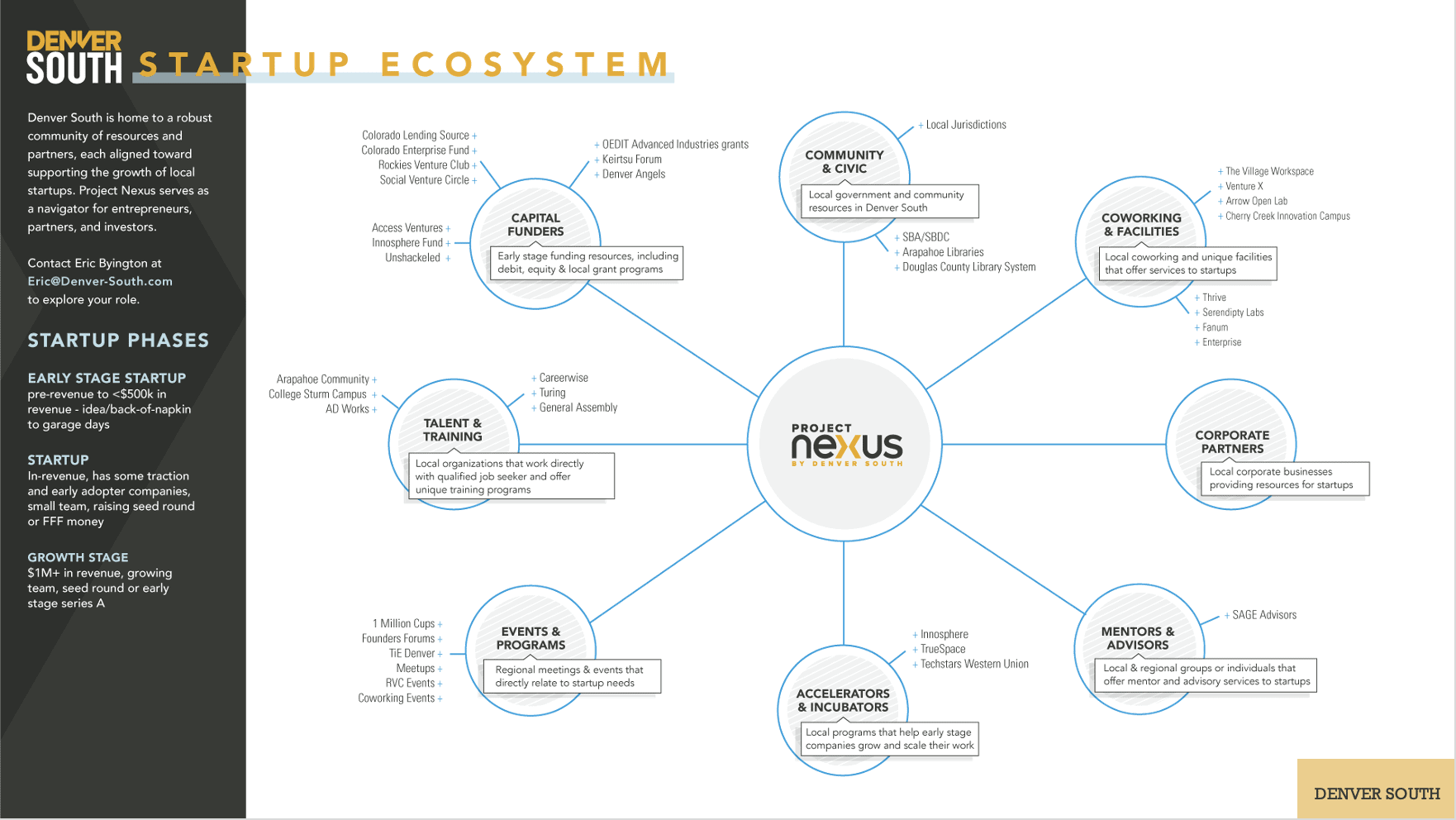About EcoDevo 101: The practice of economic development is vital to the advancement of any thriving community. It is also often misunderstood. In this series, we’ll dig deeper into the topics that underpin the profession, from public policy and mobility to technology and community planning, among many others.
Denver South defines an entrepreneur as a person who has the courage, risk tolerance and capacity to undertake the journey of starting a company that either creates something new or seeks to improve the status quo. If one were playing a word association game, the mostly likely term paired with entrepreneur would be, yes, you guessed it, startup.
Defining what a startup is varies from source to source. Here are some common parameters, in no specific order, that are discussed when determining startup status.
- The business purpose/reason for being/business model,
- The amount of time the business has been in operation,
- The number of employees,
- The intent and ability to grow and scale,
- Level of annual reoccurring revenue (ARR),
- Funding methods, and finally
- The “end vision”: the business being built to fund a lifestyle or achieve a substantial exit.
Categorizing startups is an art unto itself. Ask an entrepreneur and they may tell you they are an early-stage startup or entering their growth-stage. Investors will talk about the mythical unicorn or the speedy gazelle companies they are tracking or invested in. Ask a banker and you will probably hear stories of lifestyle gyms, restaurants, or local coffee shops for which they are reviewing loan applications. The way we talk about startups can be confusing and sometimes misleading. At Denver South, we think of startups in three main categories.
Mainstreet or Lifestyle
- Providing a product or service in a low-growth industry.
- Focused on a steady revenue producing business with a consistent and predictable customer base.
- Ownership team is small, and the purpose of the business is primarily focused on sustaining a certain level of income and no more.
Early-Stage
- In the development or prototype stage of a product of service.
- Pre-revenue to under $1 million in ARR.
- Focused on finding early adopters and/or investors.
- Intend to eventually grow, scale and exit.
Growth-Stage
- Product or service has market traction and has been or is being refined for efficiency and scale.
- Post-revenue with a sustained compound annual growth rate (CAGR).
- Focused on new sales opportunities, scaleup funding and expanding the team.
- Paths toward an exit enter the strategic growth plans for the company.
Suggested Reading:
Although a large focus of Denver South’s mission is on primary employers, which is a business or industry that produces goods or services for statewide, national, or international markets, we are committed to supporting startups of all kinds in our region through Project Nexus. We recognize startups have a major impact on new job creation and generate diversification in the economy, which in turn supports economic recovery and resilience.
If you are a Denver South startup or entrepreneur in need of support, do not hesitate to reach out, because we want you to succeed and we are here to help.


